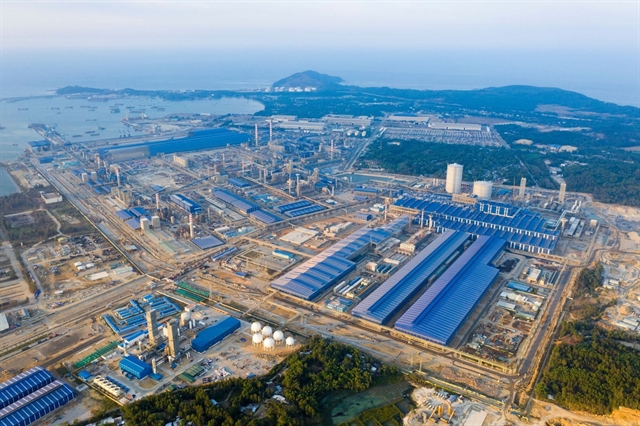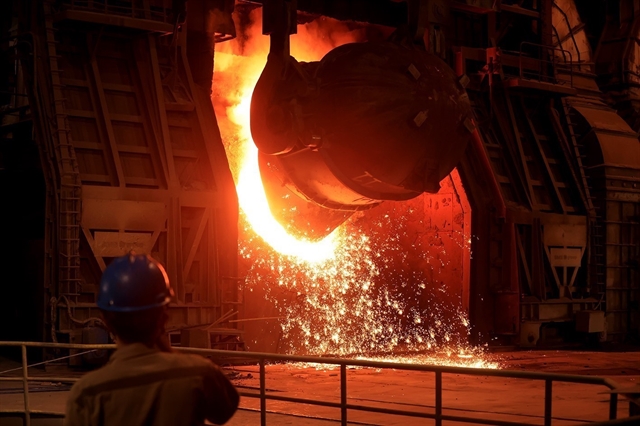 Economy
Economy

 |
| Steel production in Dung Quất Economic Zone. A project working with the EU’s Carbon Border Adjustment Mechanism (CBAM) will be developed. — VNA/VNS Photo Tuấn Anh |
HÀ NỘI — The Vietnamese Government has asked the Ministry of Industry and Trade to join with relevant ministries and agencies to develop and implement solutions to conform to possible revisions to the EU’s Carbon Border Adjustment Mechanism (CBAM).
Negotiations and dialogues will be increased with the EU and the UK to clarify the consistency of CBAM with existing international commitments under the World Trade Organisation (WTO), the EU – Việt Nam FTA (EVFTA) and the UK – Việt Nam FTA (UKVFTA).
The ministry will also study the possibility of expanding the scope of CBAM, especially for agricultural and forestry products, together with suitable support and exemption mechanisms for Việt Nam. Close watch will be made on the application of similar mechanisms in other countries such as the US and Canada.
Việt Nam will increase negotiations and join bilateral and multilateral international forums and frameworks to enhance international cooperation and recognition of Việt Nam’s policies and regulations related to carbon pricing.
Support must be provided to enterprises to adapt with CBAM. In addition, policies related to carbon pricing will be raised to ensure consistency with international practices, including the development of a domestic carbon market, along with carbon and green credits.
CBAM is a mechanism in which the EU will impose a carbon tax on all goods imported into the bloc based on the greenhouse gas emissions during production.
Việt Nam is the 11th largest exporter to the EU.
Currently, most Việt Nam’s exports to the EU are not subject to CBAM - apart from iron and steel, cement, fertiliser and aluminum. However, the CBAM’s scope might be expanded in the future. — VNS




